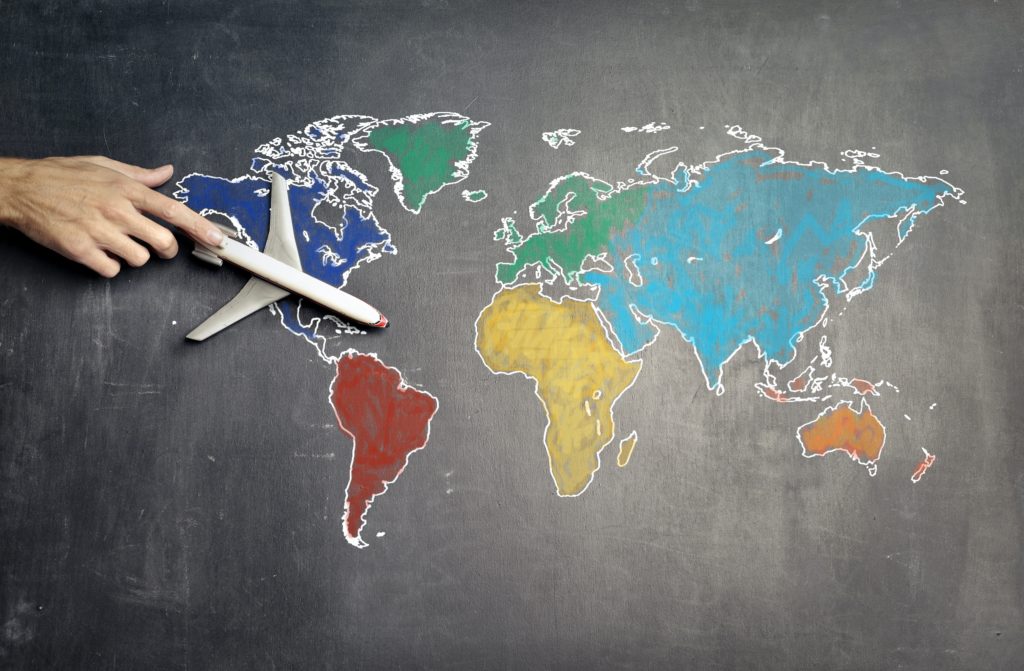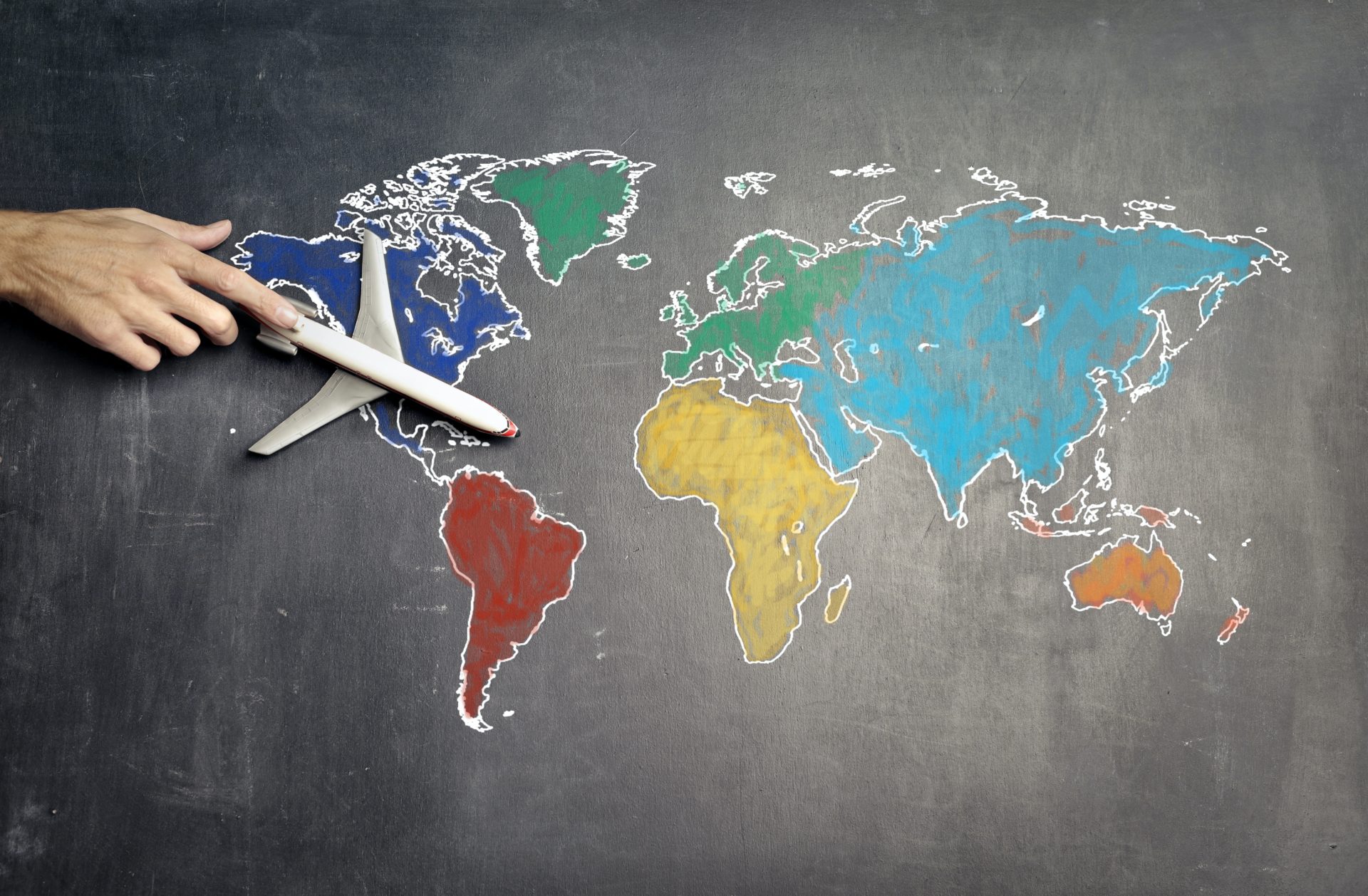The technological and economic advancements of the 21st century have created an era of unprecedented global integration. Between Zoom calls across the world, advanced logistics softwares, and the mass network of international flight routes, working on a global scale in international careers is easier than ever before. As a young professional, boasting a global CV can catapult you into a plethora of new opportunities and advancements.
We here at EDHEC have compiled a list of the top considerations you should think about before taking your career global.

Tip #1: First, establish why you want to pursue an international career
It’s easy to become wrapped up in the idea of a global lifestyle, and for many industries, success is now defined on a multi-national level.
While incredibly rewarding, a global career can also come with many challenges and difficulties. That’s why it’s important to reflect on the reasons for pursuing a job in another country before embarking on an international journey.
Are you seeking new, radically different experiences? Are you looking to boost your resume and/or climb up a corporate ladder? Are you seeking cultural and personal enrichment? Your answers to these questions will determine where and how to begin your journey as an international professional.
Tip #2: Research your top destinations, and be open to emerging markets
Working along the glimmering coast of a southern Greek Island sounds like a fantasy too good to be true — and that’s because it probably is. While the weather is great and the food is delicious, unfortunately Greece’s current economic climate is generally not conducive to industry growth. On the other hand, if you’re looking to dive into the olive oil exportation industry, Greece might be the perfect destination for your next professional venture.
It’s important to know which countries are best for your specific career path, experiencing the most growth in your field. You should weigh the personal and economical benefits of a destination with its professional opportunities.
It’s also important to evaluate how developed a specific market is within each of the countries you’re considering. Established hubs for business such as New York or London have many offers across virtually all sectors of industry, and yet they also have the stiffest competition. Countries with emerging markets, on the other hand, often offer a higher number of opportunities to young professionals, and provide more space for upward career growth.
Tip #3: Make sure you can legally work in the country you choose
Each country has their own rules, regulations, and requirements for entering the country, which can change depending on your citizenship and residency. Many countries require visa sponsorship from an employer in order to process work visa applications, and freelance/start-up visas come with varying investment, accounting, and documentation requirements.
It is essential to identify your legal ability to enter and remain in a country before departure — without proper documentation, many countries will refuse you at the border.
One of the best ways to facilitate moving to another country is through your current employer. If you enjoy your working environment, consider being open with management about your goals and aspirations for an international career. An internal transfer not only allows you to continue to grow within the same company, but also greatly facilities the visa-acquisition process.
Alternatively, thanks to new work-from-home capabilities, many employees have recently been successful at re-negotiating their contracts into remote working or freelancing. This gives them more flexibility over their schedules and broadens their possibilities of living abroad.
Tip #4: Be realistic about the potential difficulties with moving across the world
While a global career will bring exciting new experiences, connections, and cultural experience, there will always be an adjustment period (in some places more than others). Knowing as much as possible about the work and social culture before embarking is the best way to minimize culture shock and prepare yourself for a new working environment.
France, for example, limits the regular work week to 35 hours for those with non-managerial responsibilities, while South Korea has only recently reduced the maximum workweek from 68 to 48 hours a week. Vacation benefits might be higher or lower than standards you’re used to, and healthcare options for employees might be public or private.
Even daily tasks such as when meals are eaten in a day, and how friends and co-workers greet each other can change drastically between countries around the world. Depending on how different this new culture is from your own, adapting can sometimes present a great challenge. By recognizing there will be difficult moments, and by making yourself open to new habits and customs, you will open yourself up to making great strides in both your personal life and your professional international career.
Tip #5: Be open to change and new opportunities
Part of the process of globalizing your career goals is not to be too specific during your job search. “Niching down” is a common buzzword used to refer to developing expertise in order to offer a unique and indispensable profile to clients and employers.
However, in many different parts of the world, these niche sectors might come with different titles, or might not even exist at all. Focus instead on the type of skills you would like to develop while abroad and the experience you currently possess, analysing the positions which would best suit your skill-set in the market you would like to enter.
Don’t be held back by companies in industries you are less familiar with — as long as you are developing the right skills in the right type of position, you will advance your international career.
On the other hand, be careful when accepting simply any position solely for its foreign location: not all jobs can be applied to an international context. Jobs in sectors such as IT, digital marketing, and data privacy are universally relevant, and will be applicable across the globe when eventually seeking the next international career move. Roles in country-specific policy such as regulation control or local legislation, on the other hand, are so unique that they will not carry over outside of the country.
Tip #6: Look for guidance and connections to help you along the way
One of the best ways to feel more confident about an international career move is by identifying a friend or mentor who can help you along the way. Someone who has already been through the process of uprooting across the world, and who will be able to offer advice and guidance to assist with the entire process. Arriving alone into a completely different country can be a daunting task, and yet having just a single connection on the ground can create a lasting network of invaluable friends and colleagues no matter the length of your stay.
If you’re not sure where to start, or how your skills specifically apply to international careers, it’s a great idea to consider a degree programme that will equip you with the knowledge and wherewithal to confront the world job market.
EDHEC online programmes, especially the Online Master of Science in International Business Management, are specifically designed to prepare young professionals for the current global economy. With both professors and students from all around the world, EDHEC diplomas hold the fusion of knowledge and managerial skills development in a global context at the heart of the learning experience. From day one, all students also become a part of the EDHEC alumni network — an extensive community present in over 4,700 different companies, living in 145 different countries, and meeting over 500 times a year across the world.
At the end of the day, only you will know when you are ready to take your career to the next level. Despite potential challenges with documentation and work and social culture, developing an international career path will set your CV apart from the rest, establishing your profile as a top professional in the global market.



